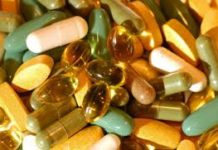Vitamin B17, also called amygdalin, and more commonly laetrile, is one of the most controversial vitamins of the last few decades. Laetrile was originally developed in 1952 by biochemist Ernst Krebs. Krebs originally isolated laetrile from apricot pits, and with his son, began to promote it as a cancer preventative and a wonder cure, Extensive testing of laetrile by the National Cancer Institute found laetrile to be of no value as a cancer treatment, and it was further rejected by the Food and Drug Administration on the grounds it might be poisonous due to its cyanide content. This led to bitter charges by Krebs that the medical establishment and the FDA conspired in a campaign to keep his miracle compound out of the public domain.
Later reclassified by Krebs as vitamin B-17, chemically, laetrile is a compound of two sugar molecules called an amygdalin. Though it is referred to as vitamin B17, laetrile falls short of meeting established standards for consideration as a vitamin, as there there is no established metabolic need for laetrile, and there are no known deficiency symptoms when laetrile is absent from the diet.
Laetrile is a naturally occurring compound that can be found in small amounts in the seeds and pits of apricots, apples, cherries, peaches, plums, and nectarines. Laetrile contains approximately 6% cyanide, which is an extremely toxic substance. Taking excessive amounts of laetrile is dangerous, and used improperly, can be lethal.
While there is ongoing research, to date, there has been no effective proof that laetrile helps prevent or cure cancer. The main medical criticism commonly directed at laetrile is that people with potentially curable cancer may choose to take laetrile while avoiding conventional treatments, waiting until it is too late to gain benefit from effective therapy.














Good article, I am using Vitamin b17 Novodalin. I have cancer and I feel much better with metabolic therapy